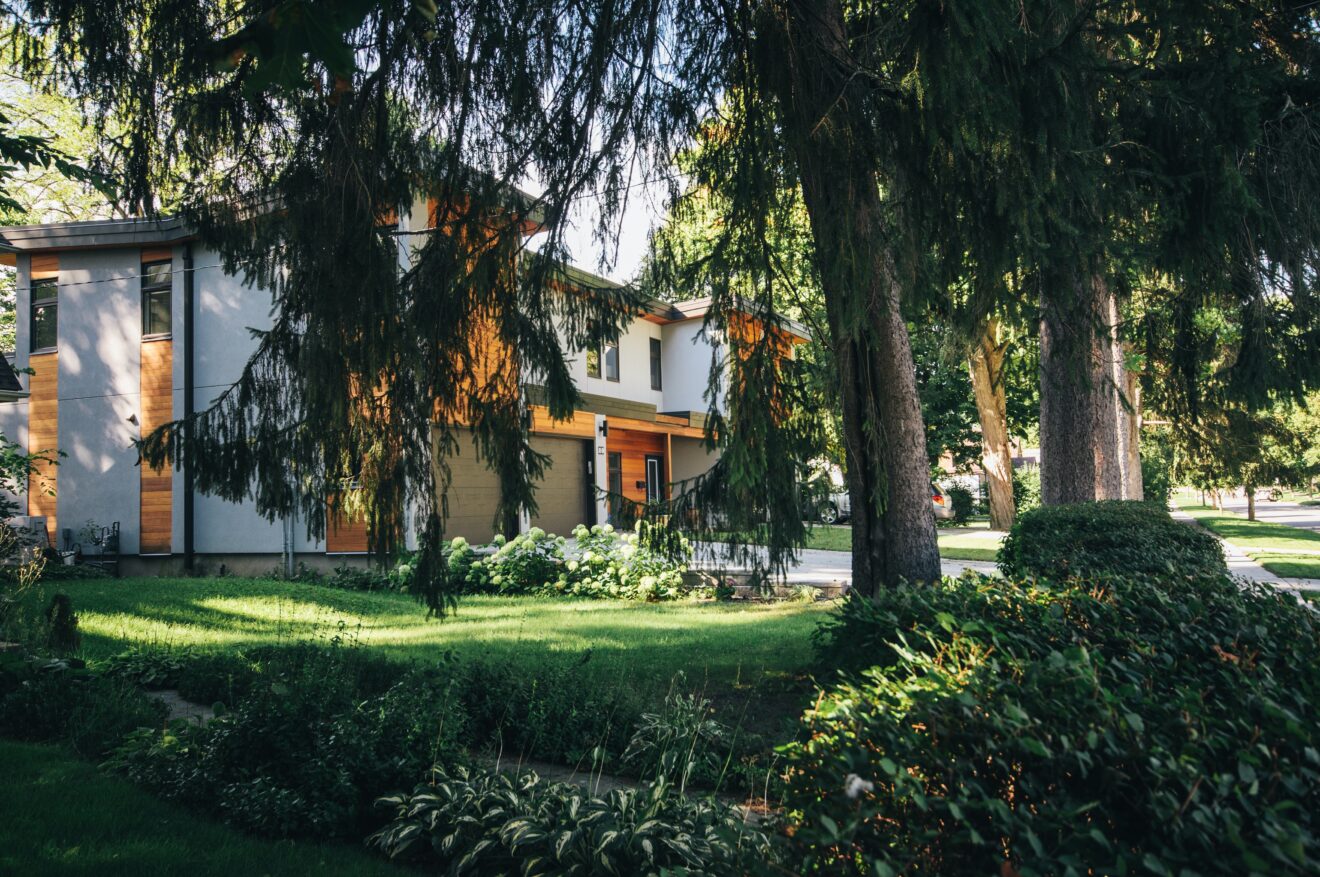Milton, Ontario is one of the fastest-growing communities in Canada. Located just west of Toronto, this city has become a hotspot for families, first-time buyers, and investors alike, thanks to its diverse community and neighborhoods. Compared to other cities in the region, Milton stands out for its unique blend of rapid growth and welcoming atmosphere. But with home prices rising and the cost of living increasing, the question many are asking is: how much house can you afford in Milton right now? The answer isn’t one-size-fits-all. It depends on income, debt, lifestyle, and your long-term plans. Let’s break it down.
1. The State of the Housing Market in Milton
Milton’s housing market is currently a mix of opportunity and caution. In October and November 2024, the estimated average home sale prices hovered around $990,000. That’s below the national average in many large metro areas but still substantial. Sellers are becoming more flexible, but inventory remains limited, with a range of homes available in different price brackets. In the last quarter, over 60 homes were sold, reflecting ongoing demand. Homes are staying on the market for about half as long as they did last year. It’s a market where preparation gives buyers an edge. Some residents are noticing that smaller towns just outside Milton are drawing attention for offering more house for the same money, making competition even more complex.
For more details, recent data shows a range of home prices and types available in Milton.
The market is also being shaped by interest rate movements and demographic shifts. As more people look to leave denser city cores in search of space, Milton’s population has grown. This demand puts pressure on both housing prices and inventory. Understanding this broader context can help you plan your strategy better—whether you’re buying your first home or upgrading to your dream home.
2. Start With What You Make: Income and Affordability
Before you even look at houses, you need to know your numbers. Income is the biggest factor used to determine how much house you can afford in Milton right now. The general rule: your monthly housing costs (mortgage, tax, insurance) should be no more than 32% of your gross monthly income. If you earn $120,000 annually, aim for housing costs around $3,200 per month.
That 32% should also factor in your other financial obligations. Personal loans, car payments, credit card balances, and even student loans all impact your ability to secure a mortgage. A lender may approve you for more, but only you know what you can comfortably manage each month without sacrificing your lifestyle or savings.
In many cases, it helps to create a basic monthly budget. Write down every fixed cost, from insurance premiums to gym memberships, and compare it to your income. The clearer you are about your money, the better your decisions will be when it’s time to submit an offer.
3. The Mortgage Puzzle: Understanding Monthly Payments
Your mortgage is more than just a loan. It’s a calculation based on loan size, interest rate, and amortization. For a $700,000 principal amount borrowed at 5.5% over 25 years, expect monthly payments around $4,200. Use a mortgage calculator to experiment with down payments and rates. This is where your dream home becomes a math problem you can solve.
If you’re able to lock in a lower interest rate or stretch your amortization period to 30 years, you may reduce your monthly payment. But this comes with trade-offs. A longer amortization means more interest paid over time. That’s money you could otherwise save or invest. Some mortgage programs offer rate discounts to borrowers with higher credit scores or larger down payments—so improving your credit ahead of time can be a smart move.
There are also different types of mortgages to consider. Fixed-rate mortgages offer predictability, while variable rates may save you money if interest rates stay low. Your lender or mortgage broker can help you choose what’s best based on your risk tolerance and financial goals. During mortgage processing, you can expect steps such as application review, document verification, underwriting, and possibly processing fees, all of which are important parts of getting your loan approved.
4. Don’t Forget the Extras: Taxes, Insurance, and More
Beyond your mortgage, property taxes and home insurance are non-negotiables. Homeowners in Milton pay property taxes averaging 0.7% of a home’s value annually—about $7,000 on a $1M home. Certain exemptions or assessments, such as the homestead exemption or Save Our Homes, can account for a reduction in the taxable value, helping to lower overall costs for homeowners. Add another $1,200 for insurance. And then there’s maintenance, utilities, and personal loans or lines of credit that factor into your financial health.
Keep in mind, insurance costs can vary depending on the property’s age, construction type, and location. Newer homes in well-rated neighborhoods often come with lower premiums. On the other hand, a century home near the escarpment may require specialized coverage.
Don’t forget utilities. Monthly hydro, water, and gas bills could cost $300–400, depending on the season and the size of your home. These costs are often overlooked during the excitement of the house hunt but can greatly affect your monthly balance.
Also remember potential future expenses: if the furnace or roof needs replacing in the next few years, that’s a cost you need to anticipate. Planning for these major repairs or replacements is essential to avoid unexpected financial strain.
5. Upfront Costs: Closing, Land Transfer Tax, and the “Hidden” Money
Buying a house in Milton includes upfront costs: closing costs (1.5–4% of purchase price), Ontario land transfer tax, and legal fees. As a rule of thumb, you can estimate closing costs to be about 1.5% to 4% of the home price, giving you a practical guideline for budgeting. On a $900,000 home, these costs can hit $30,000. You’ll need that money upfront, separate from your down payment. It’s smart to submit an application for pre-approval that accounts for all these fees.
You’ll also want to budget for home inspections, title insurance, and moving costs. Depending on your lender, you may need to pay for an appraisal or mortgage insurance if your down payment is below 20%. These aren’t technically “hidden” costs, but they’re often unexpected by first-time buyers.
Additionally, furnishing a new home is another cost many buyers forget to factor in. Curtains, appliances, garden tools, and even cleaning supplies can quickly add up to several thousand dollars. Having some cushion in your budget ensures these surprises don’t derail your move.
6. Your Lifestyle: Education, Food, and Entertainment
Your cost of living in Milton includes more than the house. Think education (tuition or child care), healthcare, food, transportation, and entertainment. Don’t forget savings or retirement contributions. The cost can vary greatly depending on the person and their lifestyle choices. A house you can technically afford might still squeeze your lifestyle. That’s why budgeting with honesty makes a difference.
Groceries in Ontario are among the highest in the country. A family of four can easily spend over $1,000 a month. Add in healthcare expenses not covered by OHIP, such as dental or prescriptions, and the monthly budget expands quickly. For people who live in Milton year-round, these ongoing expenses may differ from those who commute or split their time elsewhere.
Then there’s transportation. Many families in Milton rely on two cars. Insurance, gas, and maintenance could mean $700 to $1,000 per month. When you add the cost of daycare, extracurricular activities, streaming services, and occasional takeout, the monthly total can sneak up on you.
Lifestyle choices matter. If your weekends are filled with travel, shopping, and social events, your cost of living might be significantly higher than someone who stays local and cooks at home. Consider tracking your spending for a few months before committing to a monthly mortgage.
7. Tips to Help You Afford More (Without Breaking the Bank)
- Save More: Increase your down payment to reduce your loan size and improve your mortgage terms.
- Improve Your Credit: Better scores can mean lower interest rates and fewer financial roadblocks.
- Explore First-Time Buyer Programs: Ontario offers land transfer tax rebates and insured mortgage programs.
- Look Outside Hotspots: Some Milton neighborhoods offer more space and better value.
- Work with a Local Realtor: We know the market, and we can help you find homes that align with your goals and financial comfort zone.
- Reassess Your Needs: Do you need four bedrooms now, or could a three-bedroom home with a finished basement do the trick for a few years?
- Plan for the Future: Consider the resale potential of the home. Choosing a great school district or a walkable location can increase future value.
- Consider Your Investments: Think about how your home purchase fits into your overall investments and long-term financial planning.
- Budget With Buffer: Always aim to keep 10-15% of your income unallocated for unexpected expenses. Life happens, and your budget should flex with it.
Related Blogs You Might Like
Each blog title below links to a dedicated page with more information:
- Top GTA Condos You Need to Know About
- The Role of a Realtor in Selling Your Home: Why You Need an Expert in the GTA
- What Are the Best Practices for Managing Rental Properties?
Figuring out how much house you can afford in Milton right now isn’t just about the numbers on paper. It’s about your lifestyle, your future, and your peace of mind. At Bahia Realty Group Inc., we’re here to help you break it all down, calculate what makes sense, and guide you toward a home that fits your goals and your budget.
Ready to get started?
📞 416-498-3444
📧 jas@thebahiateam.com
🌐 www.bahiarealtygroupinc.com






